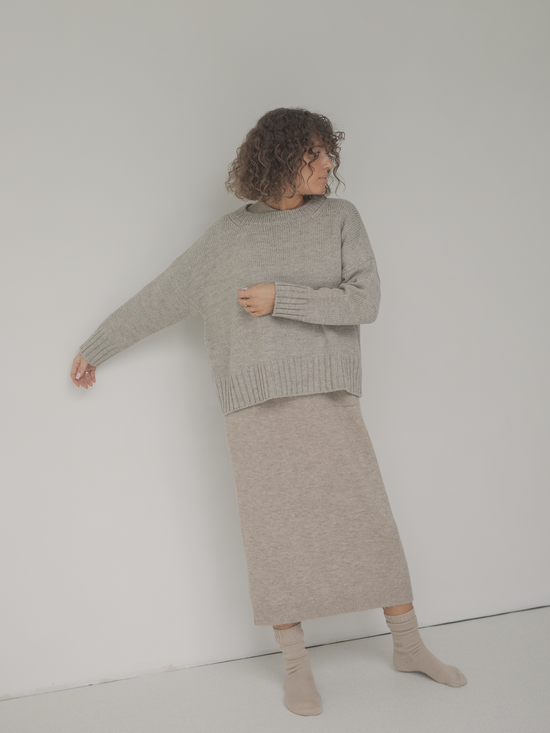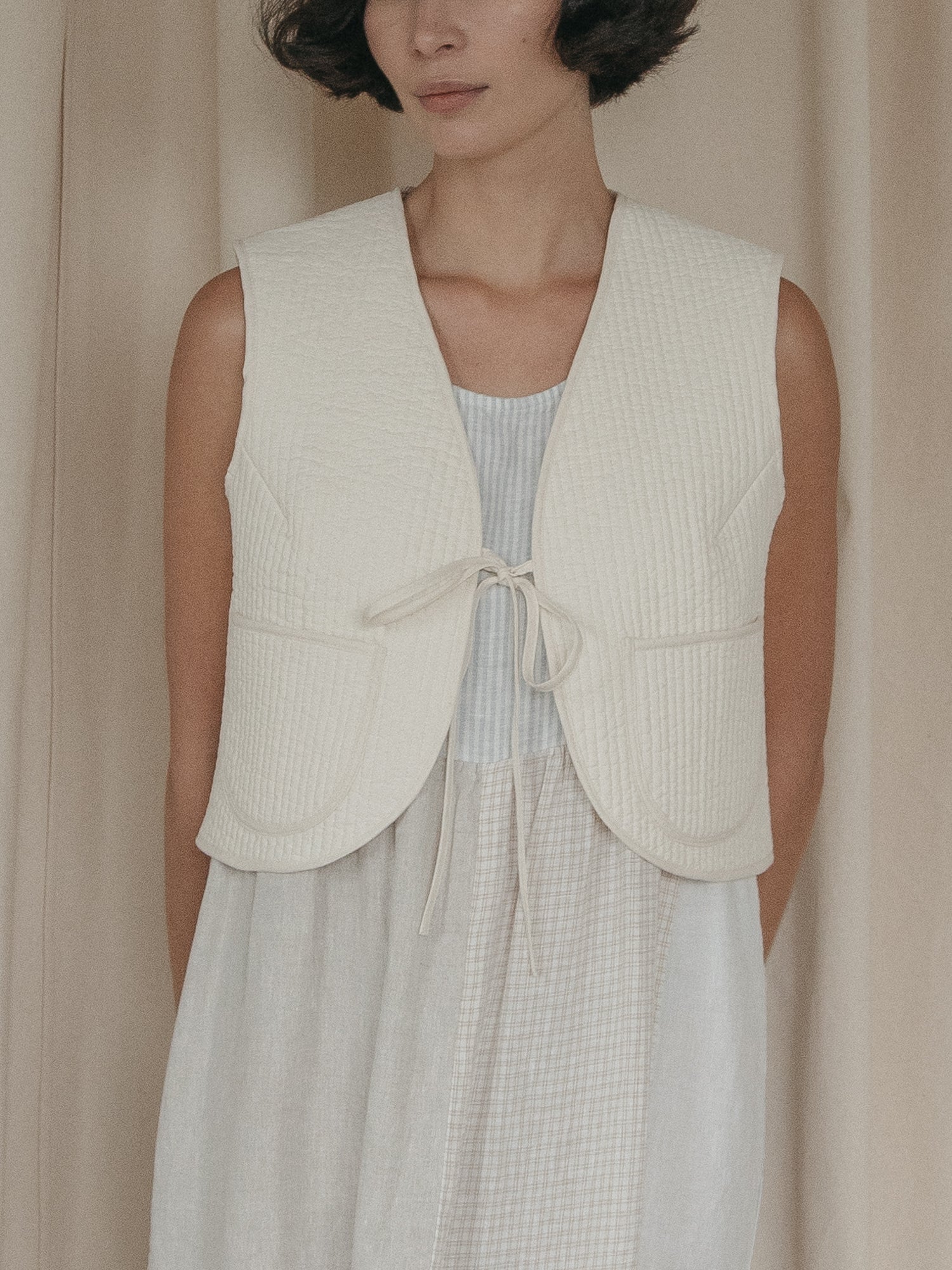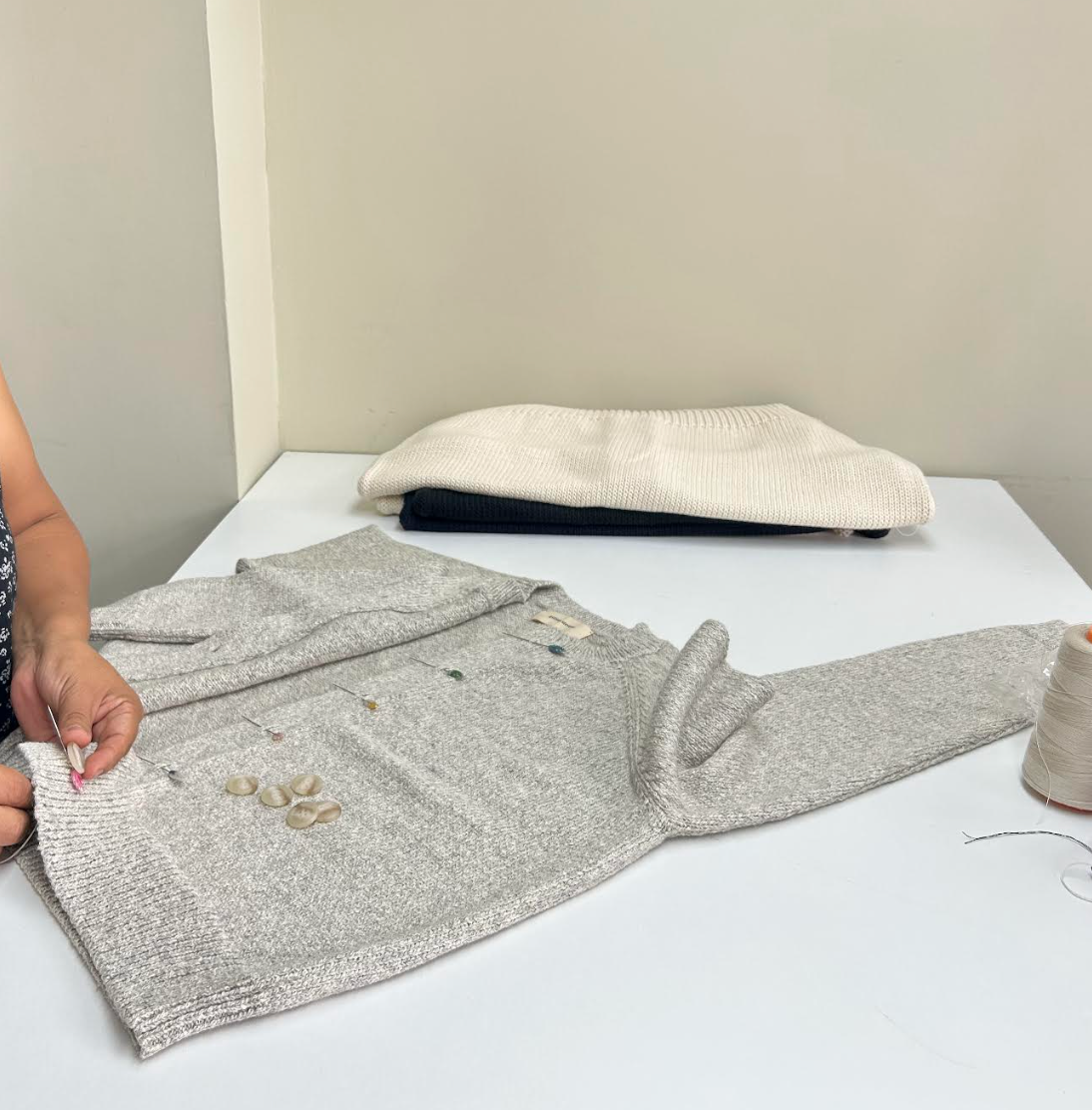Our Process
We are deeply committed to sustainability, prioritizing the use of high-quality, natural fibres sourced responsibly. From luxuriously soft organic cotton to ethically produced linen, wool and alpaca, and innovative recycled materials, we select fabrics that are gentle on the planet and comfortable against the skin. Our commitment extends to our production process, where we partner with skilled artisans and ethical manufacturers who share our values. We believe in fair wages, safe working conditions, and transparent supply chains.
Craftsmanship is at the heart of everything we do. Each garment is meticulously crafted with attention to detail, ensuring exceptional quality and durability. We believe in the power of slow fashion, creating pieces that are made to last, reducing waste and promoting a more conscious approach to consumption.
Our design philosophy centres around the concept of a curated wardrobe. We create capsule collections thoughtfully designed for effortless integration with previous seasons' pieces. This approach empowers you to build a cohesive and timeless wardrobe, adding new elements that complement and elevate your existing collection. We believe in the enduring value of versatile garments, designed for endless styling possibilities and a lasting contribution to your personal style.
Our Materials
-

Linen
Linen is considered to be the oldest fabric in the world. It is naturally antibacterial and extremely durable. It is machine washable, dries quickly, and gets stronger with wear.
The production process requires significantly less water than cotton, and almost all of the flax plant can be used which means there is very little waste of the plant.
Our linen is from Lithuania, and is Standard 100 OEKO-TEX® certified.
-

Organic Cotton
All our cotton has been GOTS certified. This certification guarantees the traceability of the organic cotton, as well as the standard of fair treatment to every person involved in the supply chain.
-

Alpaca
To more than one million small alpaca farmers in the central Andes, alpacas are an essential pillar for livelihood as well as cultural identity.
There are over twenty different natural colours of alpaca fibres, classified into nine pure colours, with many other subtle shades and hues. Which allows for many beautiful colour options without needing to be dyed.
Compared to other animal fibres, alpaca has a low grease content which means that much less energy and chemicals are required to treat the water for the washing process. -

Wool
Our wool comes from the Andean highlands, and is un-dyed. It's incredibly soft, which isn't a typical characteristic of wool, but definitely one that made us fall in love with this fibre.
Our yarns are spun by farmers in Peru that are committed to sustainability, as well as a deep connection to their local communities.
We work only with animal-friendly farmers that ensure the Alpaca's and Sheep aren't harmed but are treated with care.

Small Batch Collections
We have chosen to release small batch collections roughly four times per year. This helps us reduce unnecessary waste as we are still learning our customer demand, while also keeping our collections really speical.

Ethical Manufacturing
We are a slow fashion brand. We recognize that things take time, and that there are people behind the clothing we wear. By not subscribing to the typical fast fashion calendar, we are able to allow the time for our garments to be made well with respect to those involved in making them. The artisans and manufacturers that we work with are an integral part of our brand, and we really value the relationships we have built with them.
Lithuania
Our linen is made in Lithuania by company that specializes in the weaving, finishing and sewing of linen products.
The factory is certified in OEKO-TEX® and EUROPEAN FLAX® which guarantees of Environmental and Social Responsibility, with certified Traceability through the fibre’s global and European value chains.
Peru
Our knitwear is handcrafted in Peru by an ethical and Fair Trade certified, woman-run company. They employ highly skilled artisan groups which empower women to generate income and economic independence while working from or near home.
Their handloom and hand weaving Artisans maintain traditional production methods and artistry that has been handed down for generations. We also use yarns that are grown and spun in Peru, which eliminates unnessary shipping.




